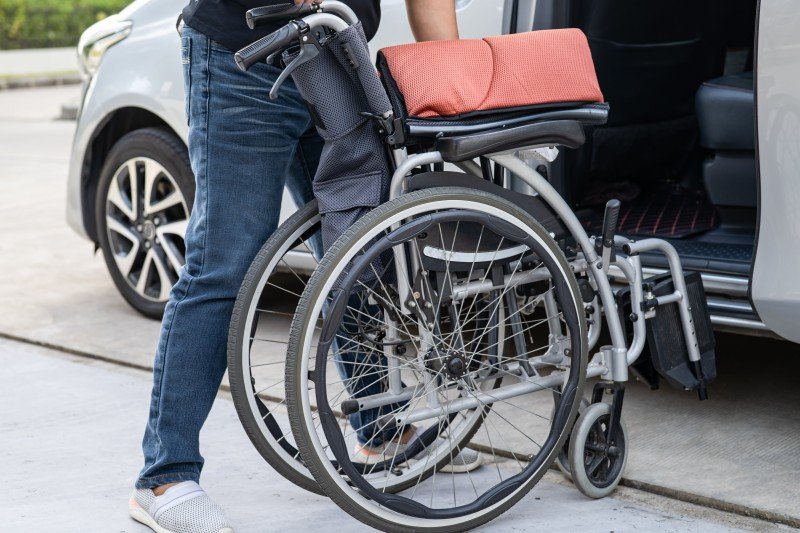Mobility Scooters in the UK: A Comprehensive Guide
In the United Kingdom, mobility scooter uk scooters are ending up being an increasingly popular ways of transportation for individuals with mobility issues, providing them with the liberty to navigate their neighborhoods separately. These motorized cars are created to assist those who have difficulty walking or using a manual wheelchair, providing a practical and comfortable solution for daily travel. This short article delves into the world of mobility scooters in the UK, exploring their advantages, legal requirements, and how to select the ideal one.
Intro to Mobility Scooters
A mobility scooter is a battery-powered automobile that usually has three or 4 wheels, a seat for the chauffeur, and handlebars for steering. They are designed to be easy to use and maintain, making them perfect for older grownups and people with impairments who wish to preserve their self-reliance. Mobility scooters come in various sizes and models, each accommodating various needs and preferences.
Advantages of Mobility Scooters
- Increased Independence: Mobility scooters allow users to take a trip longer distances without the physical stress associated with walking or using a manual wheelchair. This self-reliance can considerably boost their quality of life.
- Economical: Compared to other motorized lorries, mobility scooters are fairly budget-friendly. They also need minimal maintenance, which can save users a lot of money in the long run.
- Relieve of Use: Most mobility scooters are developed to be easy to use, with intuitive controls and comfortable seating. They are typically light-weight and can be easily disassembled for transport.
- Enhanced Social Interaction: By making it possible for users to venture out more often, mobility scooters can help in reducing feelings of isolation and loneliness, cultivating social connections and neighborhood participation.
- Boosted Safety: Mobility scooters are geared up with functions such as headlights, brake lights, and horns, making them much safer for usage on roads and in public areas.
Types of Mobility Scooters
When picking a mobility scooter, it's important to think about the type that best suits your requirements. Here are the primary types available in the UK:
Class 2 Mobility Scooters:
- Speed: Limited to 4 miles per hour (6.4 km/h)
- Usage: Suitable for pavements and pedestrian locations
- Functions: Compact and lightweight, foldable for easy transport
Class 3 Mobility Scooters:
- Speed: Can rise to 8 mph (12.9 km/h)
- Usage: Suitable for both pavements and roadways, supplied they are signed up and guaranteed
- Features: Sturdier build, often with advanced features like suspension and larger batteries
Heavy Duty Mobility Scooters:
- Capacity: Designed to support users weighing up to 400 pounds (181 kg)
- Usage: Ideal for those who require a robust and resilient scooter
- Functions: Reinforced frame, larger seat, and boosted stability
Off-Road Mobility Scooters:
- Terrain: Built to manage rough and unequal surfaces
- Use: Suitable for users who delight in outdoor activities like treking or fishing
- Functions: All-terrain tires, high ground clearance, and powerful motors
Legal Requirements for Mobility Scooters in the UK
Utilizing a mobility scooter in the UK includes certain legal duties. Here are the crucial points to consider:
- Registration and Insurance:
- Class 2 Scooters: No registration or insurance needed
- Class 3 Scooters: Must be signed up with the DVLA, insured, and display a valid MOT certificate if used on roads
- Driver Requirements:
- Age: Users need to be at least 14 years of ages
- Health: No particular health conditions are required, however users ought to be able to control the scooter safely
- Speed Limits:
- Class 2 Scooters: 4 miles per hour (6.4 km/h) on pavements
- Class 3 Scooters: 8 miles per hour (12.9 km/h) on roadways, 4 mph on pavements
- Safety Equipment:
- Lights: All scooters used on roads should have front and rear lights, indications, and a horn
- Reflectors: Required for usage on roadways, specifically during low exposure conditions
- Tax and Parking:
- Tax: Class 3 scooters are exempt from automobile tax
- Parking: Users can park in designated disabled parking areas with a valid Blue Badge
How to Choose the Right Mobility Scooter
Choosing the best mobility scooter includes thinking about several elements:
Mobility Needs:
- Range: How far do you need to take a trip?
- Surface: Will you be utilizing the scooter on pavements, roads, or off-road?
- Weight Capacity: What is the maximum weight the scooter requires to support?
Budget plan:

- Initial Cost: Mobility scooters can range from a couple of hundred to several thousand pounds
- Ongoing Costs: Consider the expense of batteries, upkeep, and insurance
Features:
- Comfort: Look for a scooter with a comfortable seat and adjustable controls
- Storage: Some scooters use extra storage for shopping bags or individual products
- Mobility: If you require to transfer the scooter, select a design that is lightweight and collapsible
Track record and Support:
- Brand: Research reputable brands understood for their quality and reliability
- Guarantee: Check the warranty duration and what it covers
- Consumer Support: Ensure the manufacturer or seller provides great customer support and service
Frequently Asked Questions About Mobility Scooters in the UK
Do I need a license to drive a mobility scooter?
- No, you do not need a driving license to operate a mobility scooter in the UK. However, Class 3 scooters should be signed up with the DVLA and guaranteed if used on roadways.
Can I utilize a mobility scooter on the pavement?
- Yes, both Class 2 and Class 3 scooters are allowed on pavements, however Class 3 scooters are restricted to 4 mph.
Are there any limitations on where I can utilize a mobility scooter?
- Class 2 scooters are restricted to pavements and pedestrian locations. Class 3 scooters can be utilized on roadways, but they must satisfy particular legal requirements.
How do I keep my mobility scooter?
- Routine upkeep includes inspecting battery levels, tire pressure, and brake performance. It's likewise essential to clean the scooter regularly and store it in a dry place.
Can I get a mobility scooter through the NHS?
- The NHS offers mobility scooters through the Disabled Living Allowance (DLA) or Personal Independence Payment (PIP). You can also acquire or lease a scooter from a private seller.
Is a mobility scooter tax-deductible?
- In many cases, the expense of a mobility scooter can be declared as a medical expense. Speak with a monetary advisor for specific guidance.
Tips for Using a Mobility Scooter Safely
- Wear Appropriate Clothing:
- Wear comfy and weather-appropriate clothes. Consider wearing a high-visibility jacket when utilizing the scooter on roads.
- Preserve the Scooter:
- Regularly examine the battery, tires, and brakes to make sure the scooter is in good working condition.
- Follow Traffic Rules:
- Obey traffic signs and signals, and use designated pedestrian and cycle paths when possible.
- Use Safety Equipment:
- Always use the headlights, brake lights, and horn, especially throughout low exposure conditions.
- Be Mindful of Others:
- Be polite to pedestrians and other roadway users. Slow down when approaching congested areas.
Mobility scooters are an important tool for individuals in the UK who deal with mobility challenges. They provide a variety of benefits, from increased independence to improved security, making them a popular choice for older grownups and people with impairments. By understanding the various types of scooters, legal requirements, and how to select the ideal one, users can take pleasure in the freedom and convenience these lorries provide. Whether for everyday errands or pastime, a mobility scooter can significantly improve the lifestyle for lots of people.
Additional Resources
- DVLA Website: For details on signing up and guaranteeing a Class 3 mobility scooter
- Age UK: Offers advice and assistance for older adults considering a mobility scooter
- Disability Rights UK: Provides assistance on accessing mobility scooters through financial support programs
By putting in the time to research and choose the best mobility scooter, users can enjoy greater self-reliance and a more active lifestyle.







